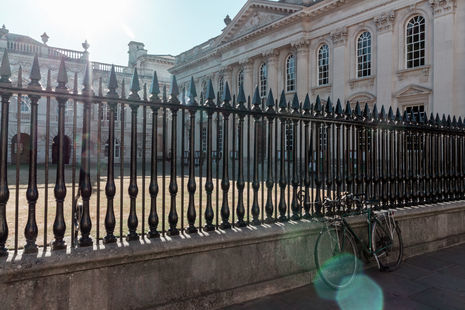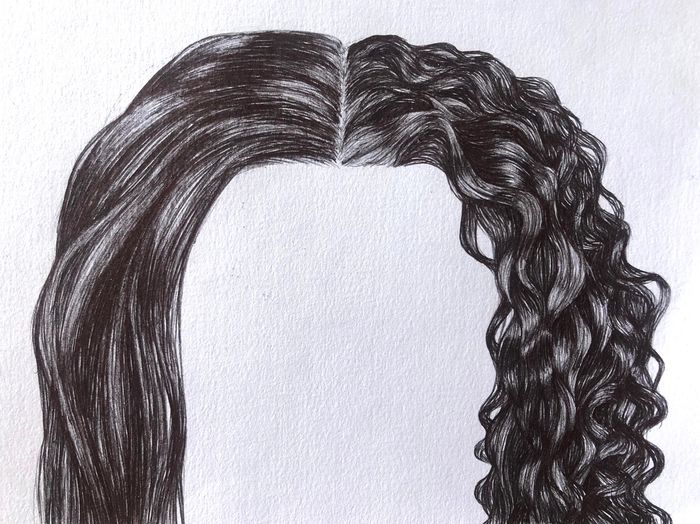Institutional racism can be elusive, but it cannot be ignored
“Despairingly, I resigned to my fate of feeling like a trespasser to my own home” writes Ryan Yeap on how institutional racism affects him in his everyday life at Cambridge

Content note: this article contains discussion of racism
As protests rage on, I am reminded of an incident that hit closer to home.
Not too long ago, Collin Edouard was forcibly prevented from entering St Catherine’s for trying to attend a supervision. It was, and still is, a harrowing reminder of how prevalent this plague is, and how deep-seated it can be, permeating even the walls of our “esteemed” university. Evidently, even Cambridge is not spared from the problems of institutional racism.
As an East-Asian, I also faced something not too dissimilar from what Collin Eduoard had to endure. Although it involved no physical altercation, its impact was felt all the same. I was returning to college after an evening out and just as I was entering through the plodge I was stopped by one of the porters.
“Excuse me, can I help you?” she inquired, sternly.
“I’m a student here,” I replied, apparently having to defend my presence.
This seemed innocuous at first: surely the porter was just exercising her responsibilities – checking if those strolling casually into college grounds had the right to be there. Or perhaps I was at fault too – maybe I had been unrecognisable with a bucket hat obscuring the better part of my face? In any case, her colleague subsequently clarified that I was indeed with the college. I brushed the incident aside, attributing it to a simple misunderstanding.
Yet just a week later, the same scenario played itself out once more. I was sure something was amiss this time around – the same porter had stopped me again! Surely by now she would have been aware that I was a rightful member of the college?
All of this occurred not long after Collin Eduoard’s incident, yet I felt hesitant to speak out then. At the time, I was afraid of being seen as “oversensitive” – as someone who “nit-picked” conduct and “stirred up trouble” where there had been none. After all, it was not like I had been forcibly denied entry – I was simply questioned at the doorstep.
"For days I would have nervous bouts of anxiety every time I wished to return to my room, dreading the risk of being interrogated every time I passed through my plodge"
Despairingly, I resigned to my fate of feeling like a trespasser to my own home. For days I would have nervous bouts of anxiety every time I wished to return to my room, dreading the risk of being interrogated every time I passed through my plodge. Eventually, I could not help but feel compelled to shuffle to my pidge with every trip, just so I could demonstrate that I was a student of the college and not some absent-minded visitor wandering onto the premises. As weeks went by without incident I felt more at ease. Yet, the lingering thought of being treated differently had already nestled at the back of my mind.
I failed to speak out because I feared my concerns were not legitimate – I had not experienced any threat of physical force nor any explicit danger to my well-being. But what I had forgotten, was that racism did not have to be explicit before it was a legitimate problem. Racism does not only manifest through overt acts of physical violence, often it lurks in between the lines. From deceptively innocent words carrying undertones of micro-aggression to unconscious bias that informs porters who try to do their job, racism can be just as damaging covertly, as it is overtly.
Collin Eduoard was labelled a protestor the moment he stepped onto college grounds – the kind that the porter “had problems with in the past”. Similarly, I was treated as an outsider who had lost his way, arousing suspicion by merely stepping through the door. Such treatment can only be the product of covert, shallow racial stereotyping: a black student is automatically a protestor just as much as an East-Asian student is automatically an “outsider” or tourist. Racial stereotyping backs students like us into a corner where we find ourselves in situations having to “prove our innocence” after being prematurely accused of being where we should not be. What this does is compromise the ethos of the Cambridge community: what is supposed to be an inherently multicultural and intensely international environment suddenly becomes exclusionary – ever so subtly – and undermines the sense of belonging students like us ought to have at the university in the first place.
There was a palpable sense that I had become a victim of implicit racial bias and stereotyping. It is a sobering reminder that institutional racism does not have to be explicit before it becomes apparent, and neither does it have to be overt before it becomes relevant. Mindsets must be changed if students like me ever hope to feel like we truly belong. Otherwise, we will remain inevitably burdened with facing passive-aggressive battlegrounds, ironically, in trying to get to places we ought to be welcome into.
 News / Cambridge academics sign open letter criticising research funding changes22 February 2026
News / Cambridge academics sign open letter criticising research funding changes22 February 2026 News / Supporters protest potential vet school closure22 February 2026
News / Supporters protest potential vet school closure22 February 2026 News / Student and union protesters hold ‘Trans Liberation Solidarity Rally’ 24 February 2026
News / Student and union protesters hold ‘Trans Liberation Solidarity Rally’ 24 February 2026 News / Union speakers condemn ‘hateful’ Katie Hopkins speech14 February 2026
News / Union speakers condemn ‘hateful’ Katie Hopkins speech14 February 2026 News / Hundreds of Cambridge academics demand vote on fate of vet course20 February 2026
News / Hundreds of Cambridge academics demand vote on fate of vet course20 February 2026










